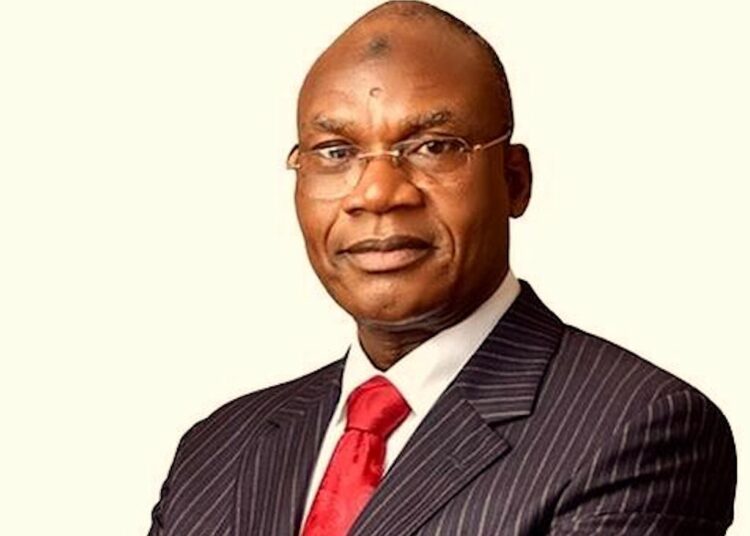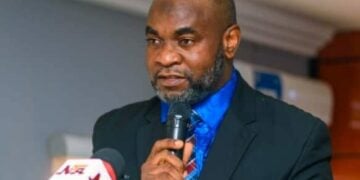The Minister of Education, Professor Tahir Mamman, has announced that degrees obtained via Open and Distance Learning (ODL) system of education in Nigeria from accredited institutions have same and equal value with the ones issued at regular/conventional university system.
Mammam also explained that ODL system of education was established years ago to close the widening gap created by limited admission spaces in the conventional universities which was and still being experienced in Nigerian University System (NUS).
Speaking at the opening ceremony of a three-day stakeholders’ Roundtable for the critique and adoption of the draft stand-alone National Policy on Open, Distance and e-Learning in Abuja, on Tuesday, the Minister reaffirmed that ODL system had come to stay.
He added that it had served and continued to serve the purpose for which it was established.
“Sadly, only limited number of qualified students (about 25%) who applied for admissions into tertiary institutions are able to secure admissions in a particular admission year. What happens to the rest of hundreds that are interested in university education? ODL has closed that gap.
“National Open University of Nigeria (NOUN) has been doing amazingly well, growing in leaps and bounds over the years. Several universities have also been accredited recently to run dual mode system of education under close and strict monitoring of the National Universities Commission (NUC).”
The Minister admitted the concerns of some Nigerians and employers of labour about the quality of education in ODL, but assured that there’s a strong quality assurance system in place to checkmate the content and delivery system of the ODL operators. “Evidently, ODL is the future of accessing university education and we have to embrace it wholeheartedly.
“Government has developed robust policies to address the challenges being witnessed in the ODL system of education particularly, the issue of quality assurance of the system.
“To this end, more advocacy is required, and being done to correct that misconceptions. We are aware that some ODL students have been unable to participate in law school and NYSC scheme. These issues are being addressed and would be resolved sooner than expected.”
Also speaking, the Director of ICT, Federal Ministry of Education (FME), Mr. Abubakar Isah who represented the Honourable Minister of State for Education (HMSE), Dr. Tanko Sununu, commended the move to strengthen the ODL system of education as alternative to the regular and conventional university system.
He said: “The focus of ODL in Nigeria has in recent years shifted from being something which is just desirable to becoming a reality with the establishment of NOUN and the emergence of a number of conventional Universities and Polytechnics with the approval of the National Universities Commission (NUC) and the National Board for Technical Education (NBTE), respectively, to operate ODL centres.
“We must acknowledge the significant challenges which have to be overcome, relating to financial resources, intellectual capital and sustainability as well as the standard and quality of ODL delivery. This is where the development of sustainable policy on ODL becomes critical to realign national strategies with emerging educational challenges.”
He added that the National Council on Education (NCE) had, in 2021, approved that the Federal Ministry of Education collaborate with relevant stakeholders to develop a stand-alone National Policy for ODL, hence the stakeholders’ Roundtable that provides a great opportunity for participants from the academia, government agencies and private sector to share experiences on technical issues that confront us in the operation of ODL in Nigeria.
“It will also broaden our perspectives and enable us to forge ahead in our journey to strengthen ODL in Nigeria from the basic, post-basic through tertiary education sub-sector,” he said.
In his remarks, the Acting Executive Secretary, NUC, Mr. Chris J. Maiyaki, said that 2020 COVID-19 pandemic reawakened the consciousness of the world to the importance of online activities, thus forcing several nations including Nigeria to give considerations to online education system through the ODL aided by technology.
He congratulated the Federal Ministry of Education and the National Open University of Nigeria for nurturing the laudable project and the huge success it had achieved so far.
He said in line with the NUC regulatory mandate of laying down Minimum Academic Standards it recently consummated and activated the Core Curriculum Minimum Academic Standards (CCMAS) in the NUS. According to him, the finalised CCMAS took into consideration the need to inculcate 21st century skills and global best practices including digital literacy.
He stressed that contemporary events such as the revolution in ICT and Covid-19 pandemic have provided compelling reasons for Nigerian universities to align their teaching and learning processes to these new developments.
He re-echoed that Professor Emeritus Olufemi Jegede, himself the father of ODL, had spoken globally about the potential, benefits as well as the unique and flexible learning offered by ODL. The Commission, he said, and other stakeholders had come into agreement that there was no hiding place for ODL and what Technology could bring to the learning table.
He explained that it was on this backdrop that the NUC in 2009 rolled out the guidelines for ODL and went ahead to establish a directorate dedicated to ODL, known as Directorate of Open, Distance and e-Learning (DODEL). He also highlighted that the NUS now have 5 open Universities, one of them being NOUN and 4 others- private open universities.
He said NUC had also facilitated the development of guidelines on Trans National Education (TNE), which was launched by the Hon Minister of Education and his British counterpart, in November 2023 at Edinburgh Scotland.
He added, it took India 18years to produce its own guidelines while it took Nigeria barely 18months. He said NUC went on to produce the guideline on e-learning during the pandemic to streamline the activities in the universities. The commission also produced the guideline for Open Education Resources (OER) and finally the guideline on the establishment of private universities with inputs from several committees of experts and academies drawn from within and outside the shores of Nigeria.
He tasked the participants to bring their wealth of experience to bear and to synergise by looking at the global scenario and matching its relevance to the Nigeria higher education system.
In a presentation, the Lead Resource Person in ODL Education in Nigeria, Emeritus Professor Olugbemiro Jegede, who is considered the father of ODL in Nigeria, highlighted the quick transformation that could be witnessed in the education sector through efficient and effective implementation of ODL system of education.
“ODL is the future of education in the world. With the increasing access and penetration of internet to more communities, medical, education, commerce and several other services are being redefined by technology. We can’t afford to be left behind.”
He made reference to notable names in Nigeria like Emeritus Professors Pai Obanya and Afe Babalola, who passed through the ODL system of education to become the best in their different callings.
He said, the time had come for the country to embrace the ODL system, while also having a comprehensive ODL Policy in place.





